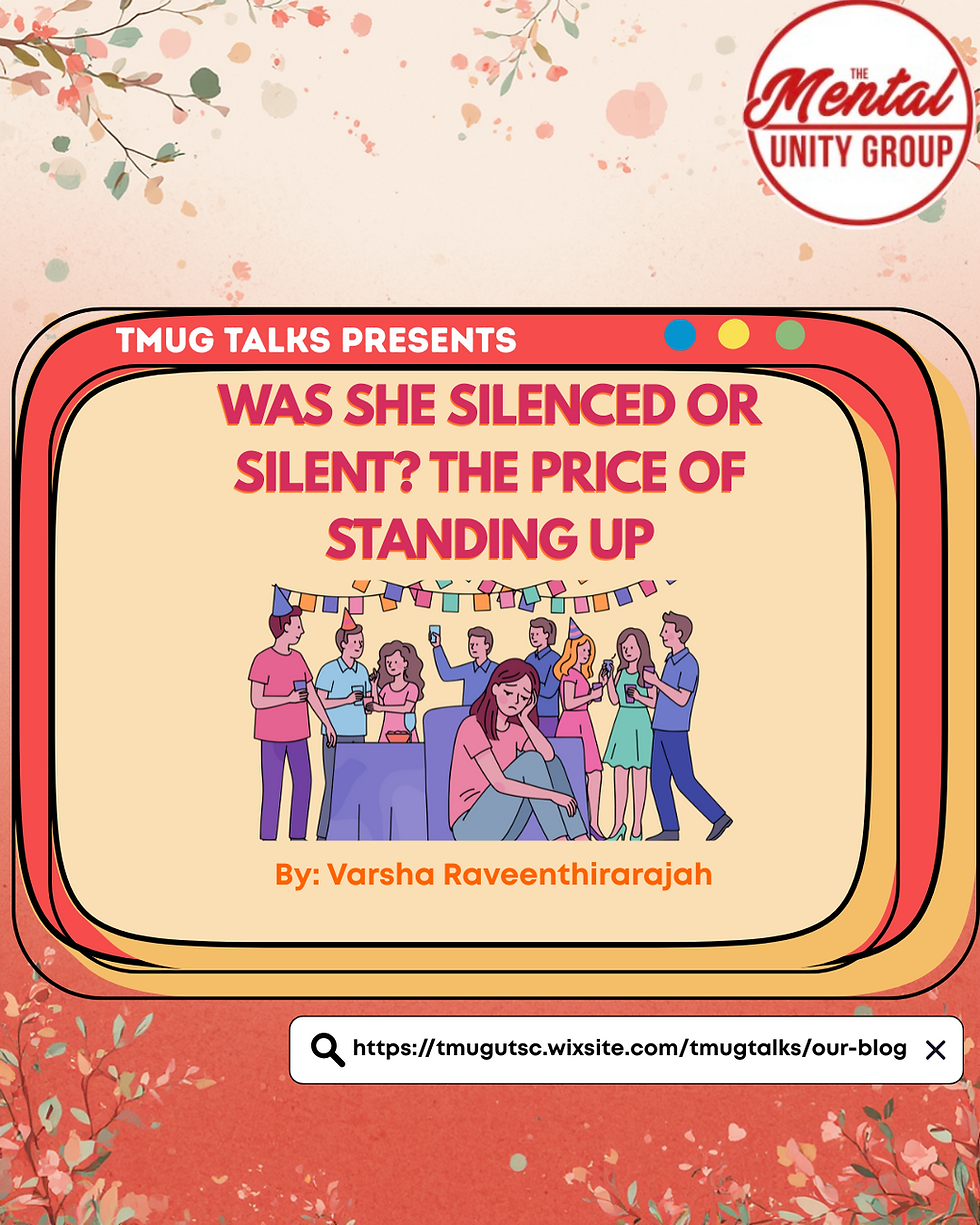Play On!
- Michelle Ng
- Apr 2, 2018
- 2 min read

Therapeutic interventions for mental health disorders have come a long way; from traditional group therapy programs to exciting virtual reality. It is evident that video games are an enjoyable activity for adolescents, for they are exciting, entertaining, and imaginative. As a result, they offer an innovative way to address the development of better practices to counter issues such as depression and anxiety.
Unbeknownst to many, there is science behind video games. Video games appeal to people’s intrinsic values, as they are simple venues of fun. They also allow for the fulfilment of three psychological needs that enhance intrinsic motivation: competence (I can complete all these tasks!), autonomy (I have free choice in this game!), and relatedness (I can bond with other players in this game!).
The issue with intervention video games, then, is identifying if knowing the applied aim of the game affects motivation and experience.
Knowing that a video game is associated with improving mental health could lead to beneficial placebo effects: Wow, this game really does make a difference in my mental health! In contrast, players could feel unenthusiastic because of the implied “seriousness”, therefore feeling unmotivated and negative about the game. The psychological need of autonomy could also be violated if health-based games explicitly state their purpose, for players may feel that they must experience the game according to certain “mental health” standards.
The authors of this study wanted to see how framing a video game as a mental health intervention or a regular entertainment-based game affects motivation and affective experience. To determine this, they had 129 university students play a game called WAY. The game is played in pairs, with each player only being able to see their partner’s obstacles; therefore, success in WAY relies on social cooperation. Before playing, students watched one of two trailers for WAY: one framed as being entertainment-focused, the other being mental health focused. Participants also completed questionnaires before and after playing WAY, with questions addressing items such as depressive symptoms and mood.
The authors found that intrinsic motivation was not different between the mental health and entertainment conditions. Findings revealed that those shown the mental health trailer experienced less autonomy. The participants in this condition felt that they had limited options and freedom, showing the influence of the explicit mental health statement. It was also found that students in the mental health group with higher depressive symptoms experienced less competence. This could possibly be explained by the ‘reminding’ effect the mental health message had on their own perceived lack of abilities
However, these decreases did not have an effect on overall intrinsic motivation in the mental health condition, suggesting that future intervention games do not have to achieve a maximal level of autonomy and competence to be helpful.
Participants with more depressive symptoms also showed improved mood and increases in positive affect following the game in either condition. This is likely due to the fact that individuals with higher depressive symptoms encounter very few positive events in their everyday lives.
Whether advertised as a mental health effort or not, video game interventions can offer adolescent players small moments of happiness, thus having the potential to be truly effective in the (very near!!) future.
Source:
https://www.sciencedirect.com/science/article/pii/S0747563218300256





Comments